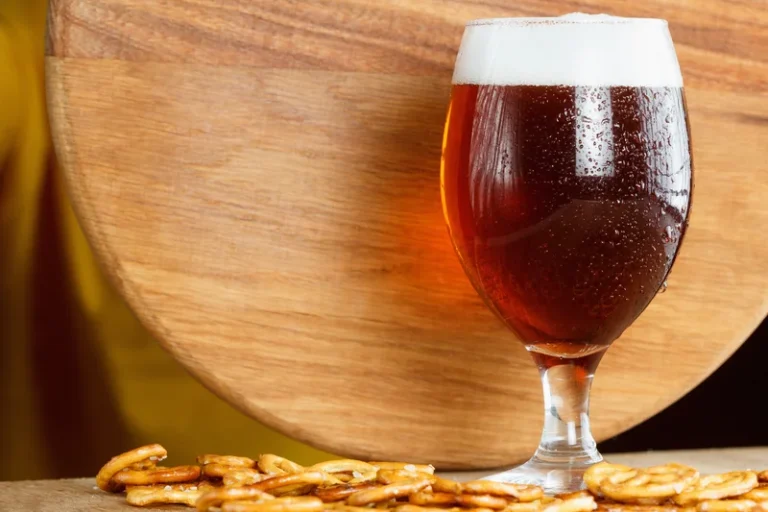Repairing Relationships After Substance Use Disorder

Discover how to build your recovery toolbox with essential tools for emotional well-being and support. Explore the vital path of seeking addiction treatment during pregnancy for healthier outcomes. Explore the history of addiction, from ancient substance use to modern understanding and treatment. Get professional help from an online addiction and mental health counselor from BetterHelp. Embark on the path to recovery with insights into alcohol detoxification stages and treatment approaches. Discover effective ways for managing symptoms during cocaine detox.
- When honestly looking at our past behavior while under the influence of drugs or alcohol, I think it isn’t easy to feel good about yourself.
- Embark on the path to recovery with insights into alcohol detoxification stages and treatment approaches.
Relationships interact with addiction and recovery efforts.
This study aims to identify the ways in which different social networks foster substance use change. Adding the stress of focusing on relationships could feel overwhelming, but it also provides an important opportunity to practice distress tolerance, emotion regulation, and coping skills. Relationships also benefit from healthy communication skills, validation, boundaries, and honesty—all of which are important for addiction recovery. When embarking on the journey of recovery from addiction, establishing healthy boundaries is a fundamental aspect of building and maintaining healthy relationships. Setting relationships in recovery clear personal limits and recognizing dysfunctional patterns play a pivotal role in fostering a supportive environment for recovery. Connection in recovery plays a crucial role in the journey to sobriety.

Support Groups and Healthy Relationships
Because the recovery model is not one consistent program (its components vary based on the client receiving treatment), it can be =https://ecosoberhouse.com/ difficult to measure its outcomes or effectiveness. I used to be envious of people who had a strong connection to God or religion. I always wanted that, but something always held me back; I couldn’t get there. I could not appreciate that while under the influence of drugs or alcohol, it was tough to have faith in much of anything. Whatever you do, say, or think should be geared towards improving your self-esteem. Take further studies to hone your knowledge and skills, learn a new language, take up cooking classes, start a new hobby.
- Conversely, existing relationships built on a foundation of mutual support and understanding may strengthen as both parties adapt to the individual’s recovery journey.
- Explore long-term sobriety statistics and discover the power of perseverance in overcoming addiction.
- The items in this subscale include the number of times the participant attended meetings, spoke at meetings, performed service, called their sponsor, and called a peer group member in the past 30 days.
- I will state that to grow in recovery, move closer to that peace and serenity that most of us want to achieve; I believe it is necessary to address spiritual issues and personal values.
Perceived Social Support – Friend (PSS friend; Procidano & Heller, .
Discover practical coping methods for living with an alcoholic and build Alcohol Use Disorder a healthier, supportive environment. COVID-19 dramatically shifted individual’s mental health and well-being for the worse. Discover what sets physical and psychological dependence apart and their impact on addiction recovery.


It’s not an easy undertaking to begin building healthy relationships in sobriety and your recovery journey, but it will be so rewarding when you do. To paraphrase the twelve-step literature, through the process of recovery you can transition from a life characterized by taking and being taken to one based on giving and being given. The effectiveness of peer support is evident in the positive outcomes for individuals in recovery. As they engage with peer support workers, individuals often find a renewed sense of hope and motivation to overcome their challenges. For more insights on emotional well-being in recovery, consider exploring developing emotional intelligence in recovery and more ways to develop emotional intelligence in recovery.
- One of the great things about addiction recovery is that our self-esteem can take a major boost.
- Increasingly, people in recovery are emerging from the shadows and throwing off the yoke of the stigma long attached to addiction.
- Findings revealed increased days of abstinence and decreased binge drinking compared to baseline reports for both the patient and the peer, suggesting the benefit of this emerging adult program (Smith et al., 2016).
- By actively cultivating empathy in recovery, individuals can nurture healthier relationships, reduce conflicts, and strengthen connections based on understanding and compassion.
- Twelve-step programs and other mutual-aid resources help serve this vital purpose.
- In any relationship, you should know what your friends, family members, or partner’s triggers are in order to avoid them as much as possible.
Delightful Holiday Drink Recipes That Don’t Require Alcohol
Among adults, family-based treatment interventions are somewhat less common. As a result, family is more likely to encourage the person in active addiction to engage in treatment, and subsequently improve outcomes (Mason & Windle, 2002; Room, Greenfield, Weisner, 1991). Another program involving family in the treatment process is the Johnson Intervention. Less is understood about how social support impacts other treatment process variables known to affect SUD treatment outcomes, including readiness to change and substance use goals. The transtheoretical model has long been applied to addiction with five stages of change correlating with a person’s position on the continuum of active use to maintaining a life free from substances.

When you enter recovery, it’s natural to want to repair this damage as soon as possible, and your impulse might be to try to do just that. However, attempting quick fixes is rarely helpful and almost never works well. We are committed to healing everyone who enters our doors from the inside out. No matter what stage our guests enter treatment, we strive to meet them right where they are. Explore the opioid overdose epidemic with key facts, figures, and insights into America’s deadliest drugs. Discover the power of a relapse prevention plan in reclaiming your life from addiction’s grip.